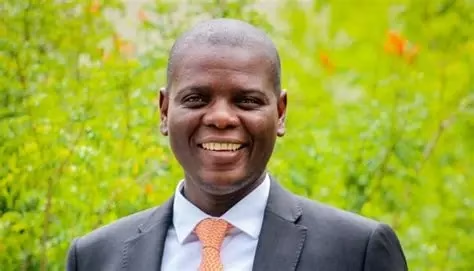
Malanji was Zambia's foreign affairs minister 2018–2021. Image: Getty Images.
(The Post News)– Joseph Malanji, Zambia’s former foreign minister, received a four-year prison sentence with hard labor after a court convicted him on multiple charges in a landmark case highlighting Zambia corruption.
The court found him guilty on seven counts related to the acquisition of luxury properties and helicopters believed to have been purchased with illicit funds. His co-defendant, former Treasury Secretary Fredson Yamba, received a three-year sentence after authorizing an unjustified transfer of more than $8 million to Zambia’s diplomatic mission in Turkey. These convictions mark a significant moment in Zambia’s ongoing fight against corruption.
Zambia Corruption : Close Ties to Former Leadership and Public Image
Malanji, who served as foreign minister from 2018 to 2021, maintained close ties to ex-President Edgar Lungu. He earned the nickname “Bonanza” for his generosity, lavish lifestyle, and high public profile.
Critics argue that Malanji’s visibility and connections may have contributed to his ability to misuse public funds over time. The court highlighted the scale of the offenses but considered both Malanji and Yamba as first-time offenders, showing some leniency in their sentencing. However, the ruling sent a clear message that misuse of public resources in Zambia will not go unpunished, reinforcing efforts to curb Zambia corruption.
Persistent Zambia Corruption Challenges Under Current Government
President Hakainde Hichilema, who assumed office after defeating Lungu four years ago, has consistently pledged to eliminate Zambian corruption. Despite these promises, critics argue that Zambia corruption remains a widespread problem within his administration. To date, no current ministers have faced prosecution, raising questions about the government’s commitment to systemic reform.
In May, the U.S. halted $50 million in health funding to Zambia amid allegations that officials systematically stole medical supplies. Transparency International ranks Zambia among the world’s most corrupt nations, highlighting the ongoing challenge of addressing Zambia corruption.
Malanji’s conviction is seen as a milestone in Zambia’s anti-corruption campaign. Legal experts note that while prosecutions of high-profile figures demonstrate the government’s willingness to act, skeptics caution that political motivations may influence which officials are targeted. Many argue that tackling Zambia corruption effectively requires structural reforms, stricter oversight, and consistent enforcement across all levels of government.
The case has attracted attention both domestically and internationally, highlighting the tension between political accountability and public trust. Citizens and advocacy groups continue to push for transparency and stronger measures to prevent misuse of public funds.
Meanwhile, the government faces increasing pressure to ensure that anti-corruption initiatives go beyond high-profile convictions and address systemic factors that allow Zambian corruption to persist.
Authorities say that Zambia’s journey toward reducing corruption is far from over. While Malanji’s sentencing represents progress, many challenges remain, including political influence, weak institutional oversight, and limited enforcement of anti-corruption laws.
The coming years will be crucial in determining whether Zambia can translate legal victories into lasting reforms that reduce Zambian corruption and restore confidence in government institutions. State attorneys secured an unusual victory in the southern African country, which Transparency International lists among the globe’s most corrupt in its 2024 Corruption Perceptions Index.
Magistrate Ireen Wishimanga recognized the fervent appeal from the defendants’ legal counsel, pointing out that Malanji and Yamba are first-time offenders worthy of leniency. She handed Malanji, 60, a four-year jail term with hard labor and imposed a three-year sentence on Yamba.
According to the reports, more than 64 percent of Zambia’s population, despite the country’s rich copper resources, live in poverty, highlighting significant economic challenges that prevent many people from benefiting from the nation’s valuable mineral wealth.
Many African countries, including Zambia, face significant issues with corrupt governance that impede economic growth and equitable development. The government has faced scandals such as alleged corrupt payments and misuse of state funds involving high-level officials, which undermines public trust and poverty reduction efforts.



